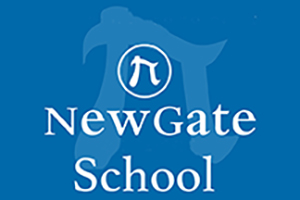by Tim Seldin
Your Child’s Brain – Executive Function Skills
Executive Function skills are the mental processes that enable us to solve problems, plan, focus attention, remember instructions, organize, and complete multiple tasks successfully.
Brain research shows that executive function skills are the foundation of success in school and life. Children are not born with these skills, but they are born with the potential to develop them. The Montessori approach to education is based on activities that are tailor-made for these higher-brain processes.
With some planning, parents can incorporate some of these strategies at home to support young children’s brain development.
The brain’s executive functions begin to develop in infancy. Over time, children
become able to focus attention, control their impulses (inhibitory control), and use working memory—the facility to hold and manipulate short-term information in the brain. Working together, executive functions underpin learning and enable planning and problem-solving.
Infants as young as seven months start to exercise these cognitive skills with simple games like peekaboo or hiding a toy under a blanket
A baby uses working memory as he tracks the hiding places and exercises inhibitory control as he waits for someone or something to pop back into view. Working memory and impulse control are both at work when he wriggles with excitement as an action song like Round and Round the Garden builds to a predictable climax.
As toddlers turn into preschoolers, matching and sorting games, memory games, and puzzles are great exercise for visual working memory. Children become more flexible in their thinking and can pay attention to different demands in games, such as Follow the Leader and Simon Says. Imaginary play enhances planning skills and self-regulation, especially if children are asked to organize the setting and decide who is going to be mom, dad, or the doctor before they start. When you cook with your children, they develop the ability to wait for instructions, keep tasks in working memory, and pay attention to measuring and weighing.
From age four or five, board games in which children have to wait their turn, follow a rule, and, later on, involve strategy, use a trio of executive functions: working memory, flexibility, and self-control. Puzzle and brain-teaser books exercise attention and problem-solving skills. I Spy and 20 Questions are good logic and reasoning games.
As children grow, parents can help develop their problem-solving capabilities by presenting them with small tasks that encourage them to consider situations, plan, and come up with solutions.
Finding a solution to a problem involves a set of distinct steps: Identify the problem; look at the factors that make up the problem; use what you know, your skills, and what you have available to develop a solution; then decide if it worked. Adults have a range of strategies and blueprints based on previous experience that speed up our problem-solving. Children also develop strategies over time, but in the early years, life is rich in novelty, which makes planning and finding solutions especially rewarding. Try the following with your child:
Before a holiday or trip, give her a small suitcase, ask her to plan what she needs, and let her pack things like a toothbrush, pajamas, and beach toy.
At a family meeting, ask your wise child to consider a problem and offer advice.
Before a play or puppet show, get the children to organize props and plan who is doing what.
Invite your child to solve an everyday dilemma: “Our baby hates being in the supermarket cart. How can we make it fun for him?”
Remember, each child is a person today, not someday in the future when he or she grows up. Education is much more than teaching a lesson. It is a process of helping children, young and old, to learn how to learn. Don’t give children right answers. Instead, learn to ask the right questions and guide them to solve problems or master new skills for themselves, step by step. Help them all to learn how to do things for themselves, and take pride in real accomplishments.
Education is a journey, not a race. Not all teachers are parents, but all of us are our children’s first and most influential teachers. Play this role consciously and you will see your children blossom.
Tim Seldin is the President of the Montessori Foundation (www.montessori.org) and serves as the Headmaster of its Lab School, the NewGate School here in Sarasota, Florida (www.newgate.edu). This is an excerpt from one of his books, How To Raise An Amazing Child.


Recent Comments